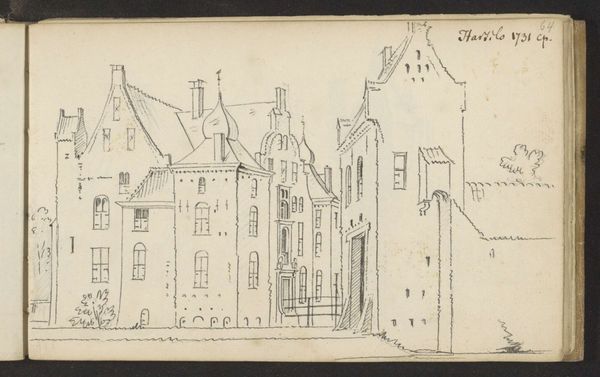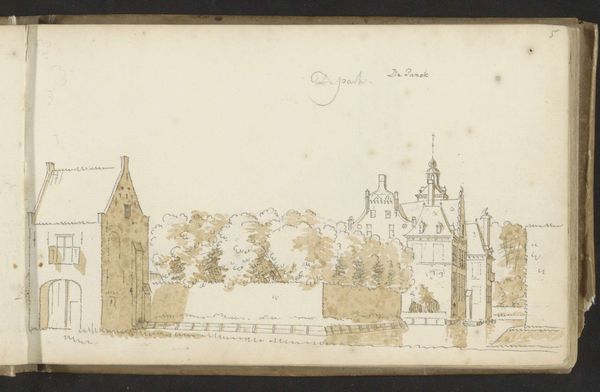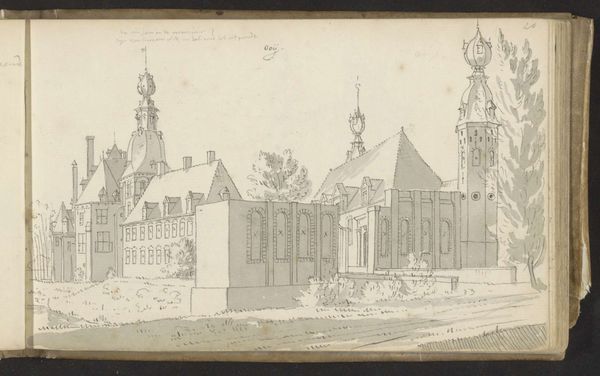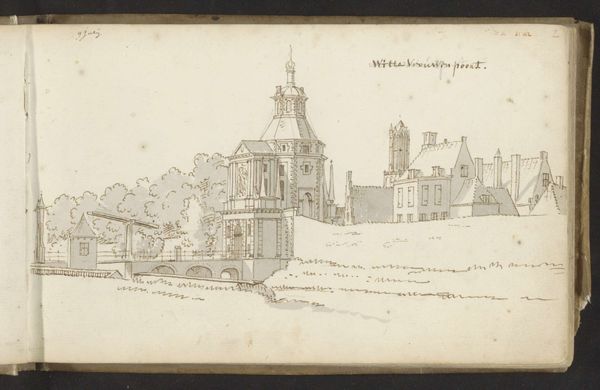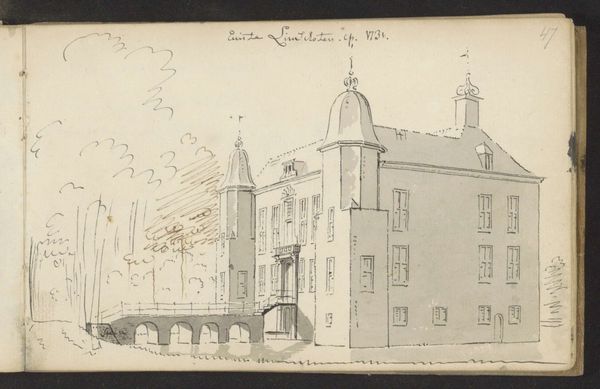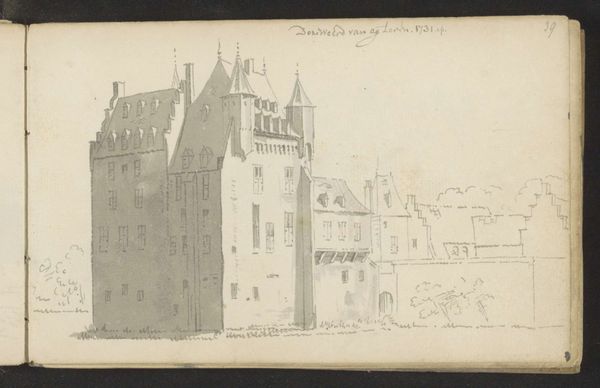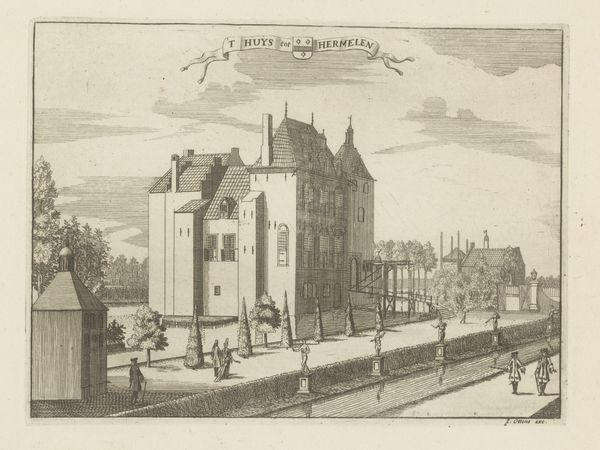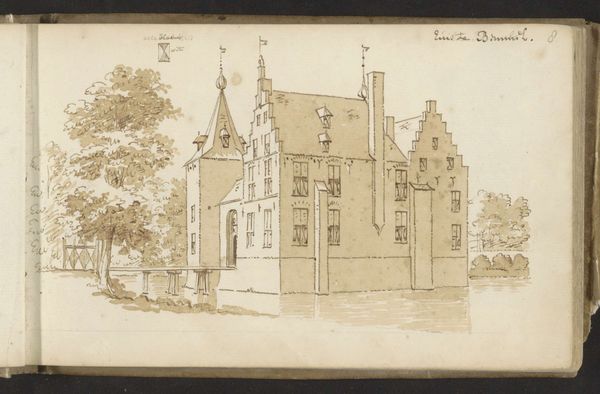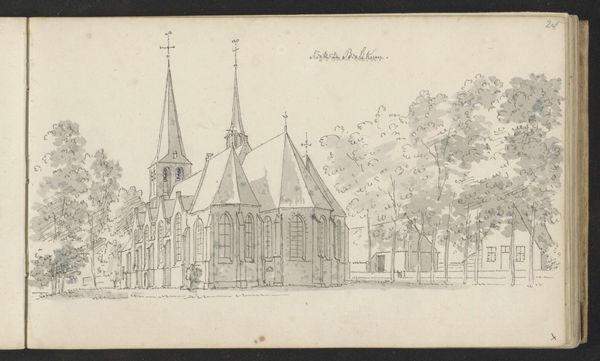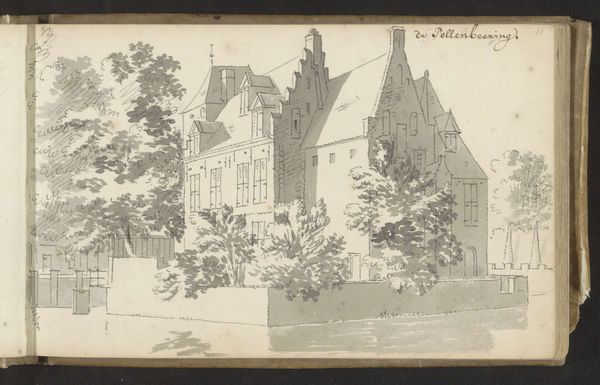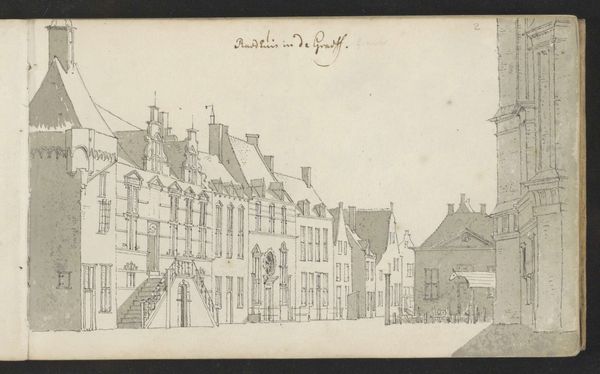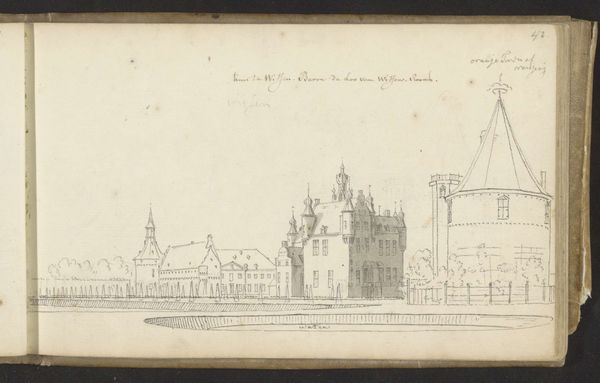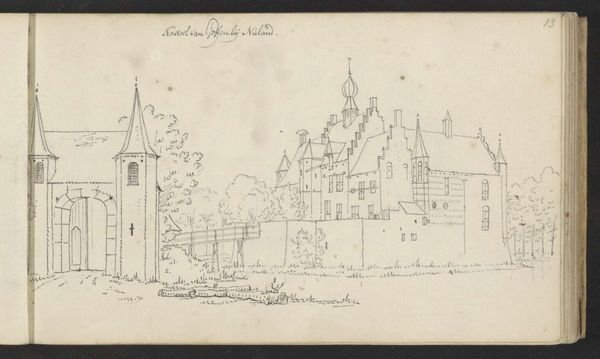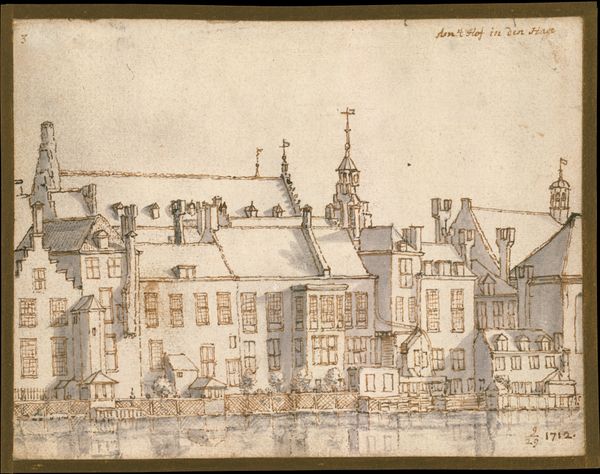
drawing, paper, ink
#
drawing
#
aged paper
#
toned paper
#
quirky sketch
#
baroque
#
sketch book
#
landscape
#
paper
#
personal sketchbook
#
ink
#
pen-ink sketch
#
line
#
pen work
#
sketchbook drawing
#
cityscape
#
storyboard and sketchbook work
#
sketchbook art
#
realism
Copyright: Rijks Museum: Open Domain
This sketch of Kasteel IJsselmonde was made in 1734 by Abraham de Haen the Younger, using pen, brush, and gray ink. It presents us with an opportunity to think about the changing roles of the aristocracy in Dutch society and the institutions that upheld it. De Haen’s rendering of the castle and its surrounding architecture employs familiar visual codes of status and authority, for example, its elevated position and imposing facade. But this was a period when the Dutch nobility was having to negotiate its place within a rapidly changing economic and political landscape. The artist was a well-known figure in the Amsterdam art world, who later in life became the city's official surveyor. How might his experience of a specific social milieu shaped the artist’s representation of the castle? Was it made for a private patron or for the market? By consulting estate records, historical maps, and other documentary sources, we can start to appreciate the complex social conditions that shaped the making and reception of this deceptively simple image.
Comments
No comments
Be the first to comment and join the conversation on the ultimate creative platform.
